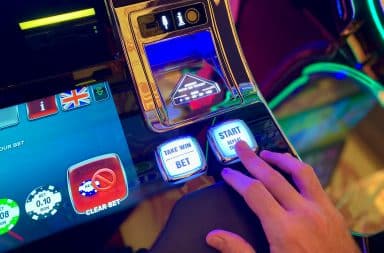In online poker, the pace of play varies wildly across different formats. Players typically encounter about 75 hands per hour on traditional online poker games at a 9-max table. At a 6-max table, the number rises to approximately 90 hands per hour. Fast fold variants such as Zoom or Snap Poker can dramatically increase this rate. They typically deal around 200-250 hands per hour. These variants are 8-10 times faster than live poker. This increase allows players to engage in a higher volume of hands within the same timeframe.
The increased hand volume can benefit experienced and winning players. Proficient players can apply their skills more frequently and enhance their potential earnings. However, the increased speed necessitates rapid decision-making and the ability to calculate odds quickly, assess situations, and implement strategic plays.
Psychological and Behavioral Influence
The speed of poker games also profoundly influences psychological and behavioral factors. Research indicates that gamblers generally prefer faster-paced poker games. This preference is particularly pronounced among individuals with gambling problems. Fast-paced games encourage more frequent wagers, prolong gameplay sessions, and make it difficult for individuals to cease gambling.
This propensity for fast games to attract gamblers underscores the necessity for operators and regulators to consider the risks associated with these formats. Increased engagement is good for business but also raises the risk of fostering problematic gambling behaviors. Monitoring and regulating the pace in poker formats may help mitigate some of these risks. Implementing measures such as mandatory breaks, self-exclusion options, and setting wagering limits can be effective in promoting responsible gambling.
Strategic Consequences of Rapid Play
The speed at which the game is played directly impacts the strategy and decision-making processes of poker players. A 2013 study by Michael Slepian at Stanford University investigated the correlation between the “smoothness” of betting motions and hand strength. The study suggested that faster, more confident betting motions might indicate stronger hands. Nonetheless, the study faced criticism due to the subjective nature of measuring “smoothness” and the potential influence of extraneous variables such as overall betting speed and hand position.
Rapid play forces players to make strategic decisions quickly. Skilled poker players must balance technical expertise with emotional regulation to remain effective in fast-paced environments. The necessity to adapt rapidly to changing game conditions and opponents' strategies underscores the role of mental agility in poker. Players who can maintain composure and make accurate decisions under pressure are more likely to succeed in fast-paced poker formats.
Artificial Intelligence in High-Speed Poker
The integration of artificial intelligence in poker offers further insights into the importance of game speed. Pluribus, an AI developed by Facebook AI and Carnegie Mellon, plays notably faster than typical human professionals. This rapid decision-making capability has enabled Pluribus to outperform top human professionals.
Pluribus's success underscores the critical role of speed in executing effective strategies in high-level poker play. The AI's ability to quickly adapt and implement optimal strategies in real time demonstrates the advantages that rapid decision-making can confer in the game. This capability stresses the importance for human players to continually improve their speed and efficiency in decision-making processes to compete at high levels. Studying AI strategies can provide valuable insights for human players looking to enhance their own gameplay.
Developing Skills for High-Speed Poker
To excel in fast-paced poker environments, players must focus on several key areas. First, improving hand reading skills is essential. Being able to quickly assess opponents' likely holdings and adjust strategies accordingly can provide a significant edge. Second, players should work on enhancing their mathematical skills to swiftly calculate pot odds and expected values. Third, developing a solid understanding of game theory and optimal strategies can help players make better decisions under time constraints.
Additionally, players can benefit from practicing mindfulness and stress management techniques. Staying calm and focused during rapid play can prevent costly mistakes and improve overall performance. Regularly reviewing hand histories and learning from past decisions can also contribute to continuous improvement.
Enhancing the Online Poker Experience
The future of online poker will likely see further advancements in technology to enhance the player experience. Virtual reality (VR) poker is becoming more prevalent, offering players an immersive experience that closely mimics live poker games. This technology not only increases entertainment value but also provides a realistic platform for players to practice and hone their skills in a virtual setting.
Moreover, the implementation of more sophisticated AI tools can offer personalized coaching and feedback, helping players identify weaknesses and improve their strategies. These tools can analyze vast amounts of data to provide insights that would be difficult for human players to discern on their own.
Conclusion
In conclusion, the pace of play in poker significantly influences strategy, psychological behavior, and overall outcomes. Fast-paced formats like Zoom and Snap Poker present unique challenges and opportunities for players. The ability to make quick, informed decisions is crucial for success in these environments. By leveraging technology, understanding the psychological impacts, and continuously refining their skills, players can thrive in the dynamic world of online poker. The evolving landscape of poker, driven by advancements in AI and increasing player engagement, highlights the need for ongoing adaptation and skill development to remain competitive.


